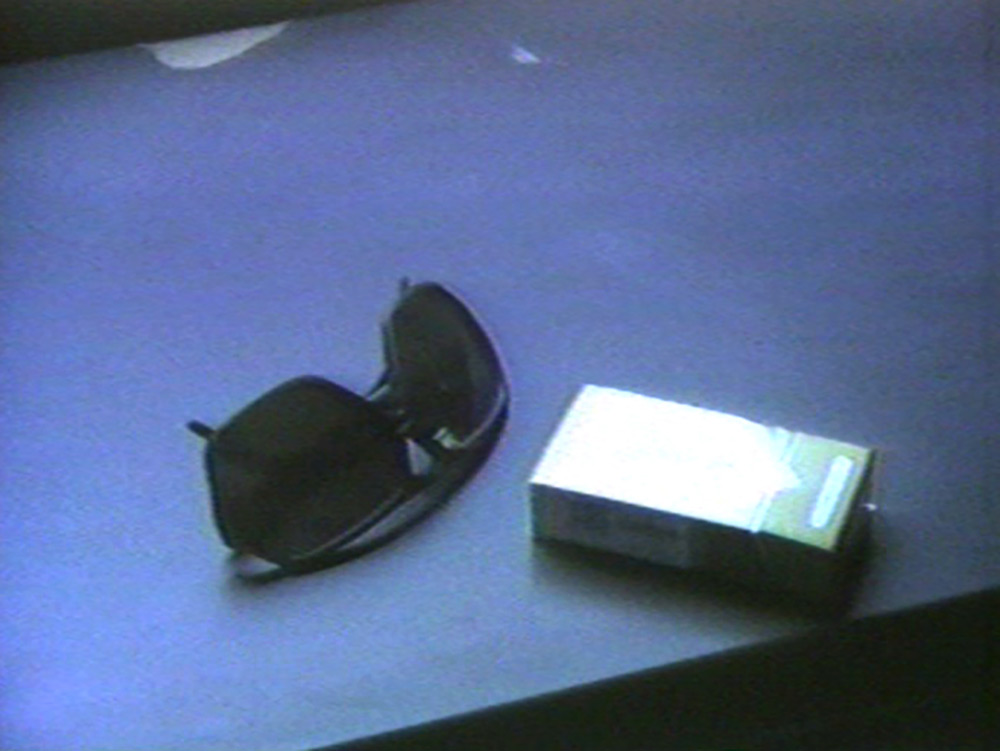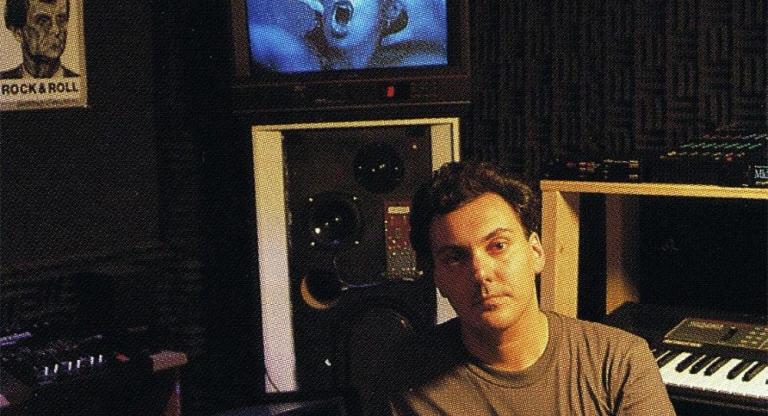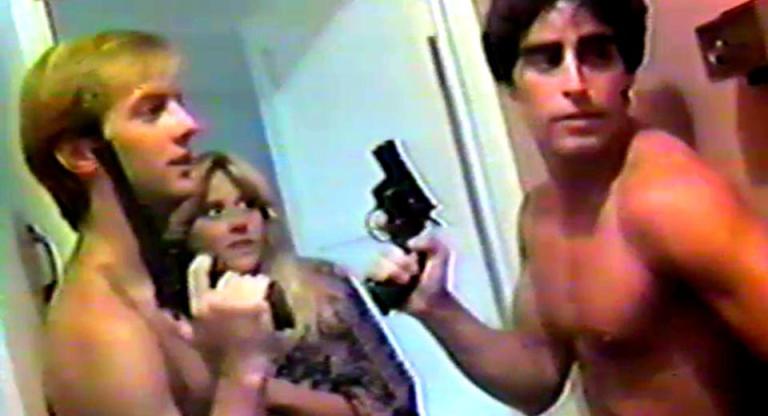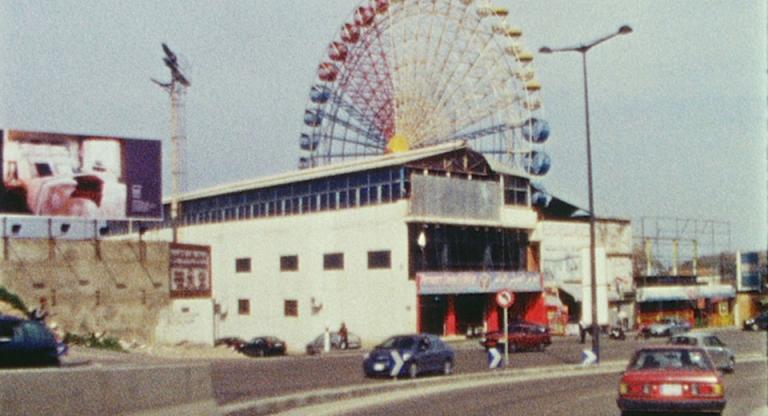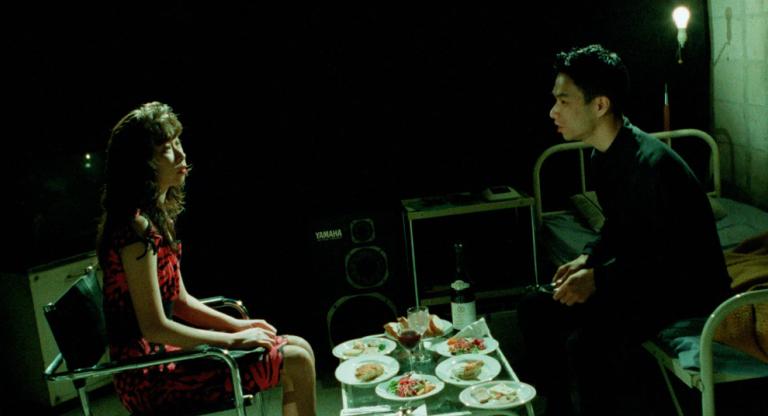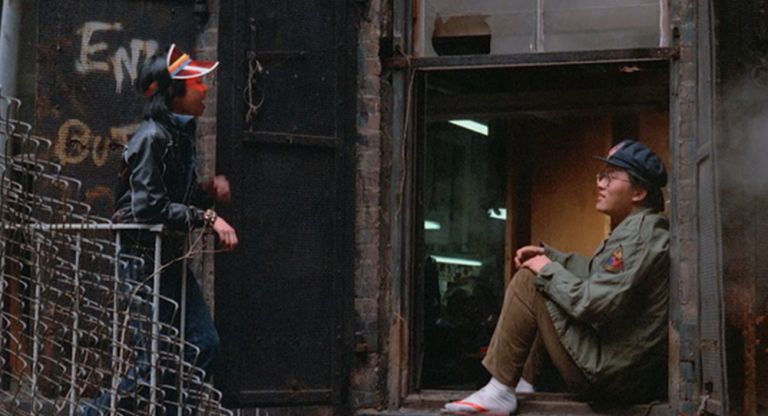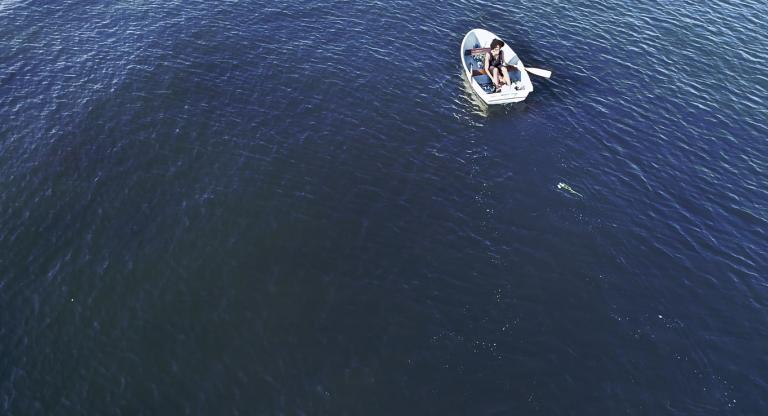Ken Camp has known an absolutely unreasonable amount of murder victims. Ken Camp knows where the bodies are buried. Talk to him a bit and you may wonder how many he’s left behind in each of his former haunts. And why the San Francisco Health Department investigated charges that he may be a terrorist. Watch his work and you’ll wonder how one man can absorb and synthesize so much cultural history and technique into such perfectly intuitive work—monumental collisions of sound and image that will challenge any audience’s conception of the intensely immediate and inspirational uses of commercial videotape. Camp's outré visions for the economically liberated and inherently political medium define its possibilities: narrative works with loud and abrasive sexuality, lingering close-ups, and subliminal editing rhythms that will make the viewer queasy with dread.
For the first time since his works' initial screenings in the ‘80s and ‘90s, Camp is returning to what he calls “the scene(s) of the crime.” When he set out to make his video opus, 1984’s Highway Hypnosis (then tentatively called Malaise, Torso, or The Torso Murders), Camp’s Long Beach neighborhood and videomaking clique were enthralled and endangered by the three parallel Freeway Killers stalking the roads (later identified as William George Bonin; Patrick Wayne Kearney, aka The Trash Bag Killer; and Randy Steven Kraft, aka The Scorecard Killer). Inspired by the violence and paranoia of the era, by the erotics of violence on the screen, and to some extent by the Los Angeles County McMartin sexual abuse case, Camp birthed his experimental psychosexual gay-serial-killer landscape masterpiece.
Highway Hypnosis is an extraordinary fusion of tone and genres—a thriller with an at-times documentary-like formalist approach. This style was perhaps in part cultivated by Campstarring role in the insanely funny and so-fucked-up-it-may-be-all-true James Robert Baker UCLA student film mockumentary Mouse Klub Konfidential (screening for the first time ever in NYC on 8/19 and 8/20 with Baker’s pseudonymously-directed Blonde Death), and it contains flashes of style that are distinctly of their time alongside moments that have an air of pre-sentiment. Camp is the Cassandra of Highland Park, a director who will always be of another time and planet that just barely resembles our own. In 1978, Konfidential prompted walk-outs and threats of violence at the San Francisco International Lesbian and Gay Film Festival. When Camp premiered its new restoration this year at the same festival (now known as Frameline), it was met with cheers, a gasped “wow” (from the legendary Annie Sprinkle seated near the Ken Camp camp), and a sense that contemporary queer cinema still has a way to go to catch up to it.
A favorite of Vaginal Davis, who linked his work with directors Kenneth Anger, John Waters, Barry Levinson and John Aes-Nihil, Camp deserves the widespread recognition of the great provocateurs and prophets. Camp connected to West Hollywood’s EZTV Video Gallery when founder John Dorr saw Camp’s film The Secret Life of Patty Hearst (1974) in which Ken found haunting beauty in the on-the-lam Patty Hearst’s quotidian routine. Dorr enlisted him to realize his dream of a gay soap opera, 1982’s As the World Burns. Dorr’s elevator-to-hell pitch: “It’s the Reagan years and all of the husbands in the neighborhood are turning gay.” Remarkably, this barely-seen series may be the first-known media to depict an interpretation of the AIDS crisis. (The first episode will screen before Highway with the subsequent episodes playing before Dorr’s Sudzall Does It All! and the EZTV Eye program.)
A theatrical screening of Highway Hypnosis is a blessed and dangerous event. Each time I watch it, I feel my stomach drop out as if my driver has fallen asleep and hit the side of the road’s turtle shell right when I’ve been lulled by stretches of monotony, amidst the flicker and flash of maddening violence. We are so thoroughly in the headspace of a killer, aware of our passivity as his eyewitness and accomplice. Like the best and worst road trip— at the end of it, are you still who you thought you were when you started?
A new preservation of Highway Hypnosis premieres Friday, August 15 at Anthology Film Archives as the opening night of Elizabeth Purchell and Hollywood Entertainment’s EZTV: ALTERNATIVE VISIONS FROM WEST HOLLYWOOD and as a co-presentation with Adam Baran’s Narrow Rooms.
